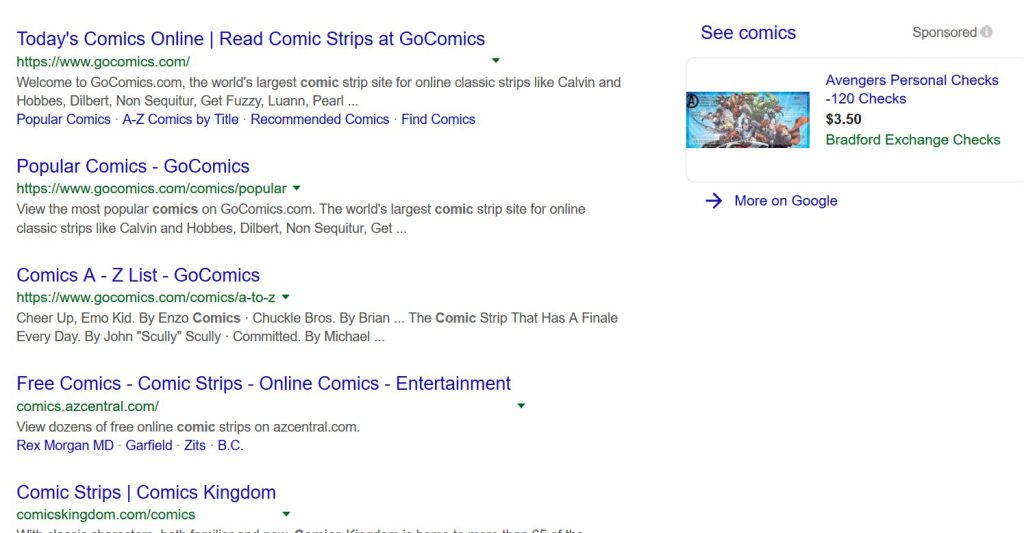What is Keyword Search Volume & How to Pick Keywords for SEO
Defining Keyword Search Volume & Understanding How to Determine Search Volume for Keywords
Keyword Search Volume is the average number of searches for a particular keyword within a search engine for a set amount of time (usually one month). You can determine search volume for keywords from thirdparty tools from Google, Moz, SEMRush, and many others.
Search Volume can be used to provide a rough idea of how popular a term is, but don’t expect much else. These numbers fluctuate wildly – both among the many, many keyword research tools, and sometimes even within the exact same tool. So, Search Volume is in no way a definitive indication of how much Traffic you could get if you were to rank #1 for a particular term.
For example, here’s what a search for “philadelphia” looks like in Google Keyword Planner:

Wow! 1.2 million people search for “Philadelphia” in a month. Hold on. Let’s see what SEM Rush is saying:

According to SEMRush, only 673,00 people on average are searching for “philadelphia.”
Does this mean that one tool is right and one is wrong? Absolutely not. It’s just that they are two different tools that use different data to determine Search Volume.
It’s important to understand that the data you’re seeing is not set in stone. And while Search Volume, along with other metrics, is helpful in giving you an indication of whether a term should be targeted, you really don’t know what you’ll get until you’re actually ranking for it.
What Other Factors Should You Consider When Choosing Your Target Keywords?
If Search Volume numbers can’t totally be trusted, how does an SEO professional decide on what keywords to target? Here are the factors to consider:
- Competition: This is the number of advertisers bidding on the particular keyword within the Google Adwords platform. Google Keyword Planner is first and foremost an Adwords tool, and although we’re concerned with ranking in the Organic Search Results, this is still a helpful metric. It shows how important other marketers consider the term to be.
- Relevancy: How relevant is the keyword to the page you’re optimizing, and your audience.
- User Intent: The ultimate goal of the user when they begin their search. For example, a user searching for “coffee” may be looking for a Starbucks, or they want to buy a bag of ground coffee from the grocery store, or they’re writing a book report on coffee. Three very different intents that may or may not be relevant to the goal of your page.
- Winnability: This ties together all the other factors and considers the bigger picture beyond searches and competition. Once you’ve considered all the factors above, ask yourself this – can your page reasonably rank on the first page for this potential Keyword.
Considering that Search Volume numbers are not totally accurate, and that there are several other factors at play, it leads us to just one conclusion: Search Volume is Meaningless Without Proper Context.
While Search Volume should still be considered, the exact number is more or less meaningless. Frequently people use Search Volume as the be all, end all of SEO success. But what you can learn from Search Volume is limited, and you need so much more to choose appropriate Target Keywords.
How to Pick Keywords for SEO: An Example
Let’s say you run a comic book shop in Philadelphia. You start your keyword research by going as broad as possible and type “comics” into Google Keyword Planner, and you see this:

673,000 is a whole lot of Searches, and the competition is low. So, if you were to rank for “comics,” presumably you could sell a lot of Action Comics issues and Batman trade paperbacks, right?
Let’s dive a bit deeper by doing a Google search for “comics”:

The top five result are websites that showcase comic strips like Dilbert, Peanuts, and others you’d see in a newspaper. Just below the above pictured results there are some recent news stories about DC Comics and Marvel, and to the right we see a sponsored ad for some Marvel Avengers personal checks.
Google serves up Search Results based on what they think the audience is looking for, and based on these Results, does any of this seem relevant to your comic book-buying, Philadelphia-based audience? Considering we’re only trying to reach superhero fans from the City of Brotherly Love, I think the answer is obvious.
What about user intent? You want people to buy comic books from you. The top five results are for people who just want a quick (free) laugh perusing Calvin And Hobbes or Marmaduke. They’re not looking to buy comics. The news stories about Marvel and DC are slightly closer to your audience, but still not close enough. Clearly, we’re running into an ambiguity issue.
Finally, what about winnability? Based on the above factors, it seems unlikely that your shop in Philadelphia could outrank these domains, and frankly, why would you want to? Even if 673,000 people are typing “comics” into Google, most of them aren’t looking to buy comic books in Philadelphia, so targeting such a broad term is a complete waste of time and effort.
Even if we went with a less ambiguous term like “comic books,” we still run into relevance and winnability issues:

You could argue that, based on the results above, these users are interested in buying comic books, but not necessarily in Philadelphia. And besides, we are never going to outrank Wikipedia, dccomics.com, and Amazon for this term.
Let’s try another search, this time knowing that we want to only reach users in Philadelphia (relevance) who intend to buy comic books (intent).

“Store” is a good qualifier, as it indicates the user is motivated to buy comic books. It has decent Search Volume and the competition for the keyword is low. So, what do the Search results look like?

While a Yelp listing for the best comic book stores in Philadelphia is first, five out of the top 10 results are websites for local comic book shops. This is an indication of two things: the keyword is relevant to users in Philadelphia interested in buying comic books, and it’s winnable. If all these other stores are ranking for the term, it stands to reason that your store could do it, too.
And finally, how about the Search Volume? It’s only 590, whereas Search Volume for “comics” is 673,000.
My answer to that is – who cares? You’re unlikely to ever rank very high for “comics,” and even if you did, you’re probably not going to sell any more books because of it. You’re much better off reaching a percentage of 590 people a month for the relevant keyword, versus reaching 0 percent of 673,000.
While a comic book store is just one very specific example, and Search results can change drastically based on a number of different factors, the overall point is that Keyword Search Volume means very little without context. The key to SEO success is not casting as wide of a net as possible and hoping you reach the right people, but instead focusing on your audience and giving them exactly what they’re looking for.



